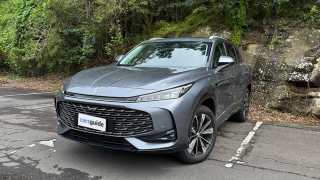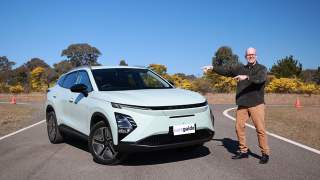
How synthetic fuels could save the V8, diesels and sports cars

There’s good news for fans of petrol and diesel-powered cars, especially sports cars - the future may not be entirely electric.
Porsche will invest €20 million ($32 million) into a new synthetic fuels project that it hopes can save the internal combustion engine from the on-coming tide of electric vehicles. The German sports car brand has partnered with Siemens Energy and the German government to build a plant in Chile that will produce carbon neutral ‘eFuels’ that will be capable of powered petrol and diesel engines with only minor modifications.
The news has big potential for performance brands like Porsche, as it would allow the firm to continue using an internal combustion engine for its iconic sports cars, including the 911. It also has implications for bigger, diesel-powered vehicles - such as utes and large SUVs - that could avoid using more complex EV or hydrogen fuel cell (FCEV) powertrains.
The new Haru Oni project will be located in southern Chile because the area is ideal for a wind farm. It will use wind power to produce green hydrogen which is then combined with captured carbon to make eFuel. The factory will ultimately produce synthetic methanol which will then be converted into petrol using a “methanol to gasoline” priority technology from ExxonMobil.
According to the companies involved, the plant will aim to produce 130,000-litres for eFuel by 2022 before ramping up production to 55 million litres by 2024 and 550 million litres in 2026. Porsche will be the main customer for that fuel and plans to use it in motorsports, at its Porsche Experience Centres and “perspectively” in its production sports cars.
However, Porsche’s investment in eFuels doesn’t mean it will abandon EVs after the Taycan and next-generation Macan, but instead sees it as an alternative option for carbon neutral motoring in the future.
“Electromobility is a top priority at Porsche,” explained Porsche CEO, Oliver Blume. “eFuels for cars are a worthwhile complement to that – if they’re produced in parts of the world where a surplus of sustainable energy is available. They are an additional element on the road to decarbonization. Their advantages lie in their ease of application: eFuels can be used in combustion engines and plug-in hybrids, and can make use of the existing network of filling stations.”
Porsche has long resisted the idea of an electric 911 and eFuels could help ensure the sports car remains powered by six-cylinder internal combustion engines - and help other sports cars,V8s and diesel models stick around a while longer.










Comments